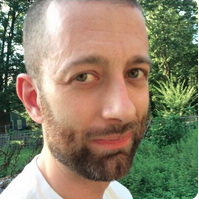We start the year with activities that teach students how to be students in a class that is radically unlike anything they have ever experienced before. The skills aren’t groundbreaking or new - taking good notes, watching videos like a scholar, sustained journaling, listening well, etc.
However, none of those are really the point. The skills are important, but they don’t speak to what is at the heart of the kind of classroom we build. In fact, the most important bootcamp goal is creating a classroom community. It’s also the one where the goalpost keeps moving, and every year, starts in a different stadium.
Certainly, you, and we, want a community that respects the teacher and respects each other. However, there’s a big difference between “I can tolerate these people” and “I have created an actual, functioning learning team.” The difference between those two is the same as the distance between an old-fashioned lecture hall with a talking head and a self-paced flipped mastery classroom. One is easy. And one is almost impossible, or at least, takes a whole lot more skill than standing up and talking for an hour every day.
This is why, at the beginning of the school year in particular, we tend to do lots of activities that don’t really seem to be all that English-y. We talk about cognitive psychology and brain development and fold strips of paper into hexaflexagons and draw pictures and build towers with spaghetti and marshmallows. This usually happens to the point where students start saying things like, “I thought this was supposed to be an English class.”
It is.
But it’s not about grammar, though that’s important, and it’s not about complex citations or labyrinthine paragraphs. It’s about community, conversation, argument; it’s about support, collegiality, bringing together vastly different perspectives. And if we have to talk about math and psychology, origami and spaghetti engineering to get there, then that’s what we need to do. Setting class up so kids feel like they can be successful, like they have a safe place to screw up academically without the world crashing in on them-- this is critical. This is the baseline for everything else we do: the collaborative essays; the vlogging; the Socratic seminars about love and loss and death and beauty and scars and recoveries and what it means to be human.
And although part of what it means to be human is to feel undermotivated sometimes, and part of it is to be fearful of what we have not yet experienced (like AP classes of 38 kids in a room made for 25), this work is so, so worth it, even if it means doing things that are not exactly part of your discipline. There will be eye rolls, both from students and misunderstanding passers-by. There will also be talk of mutiny and moments of clarity and a lot of boring practice along the way.
And frankly, real bootcamp is fundamentally about the same thing. They use punishment and discipline and rigor and outrageous tactics in order to teach each member that they have a responsibility to one another, and that community is the one that will save them when they need it. If you left building community until you were being shot at, everyone would die alone. But by purposefully making that of first importance, it lets you do all kinds of other things later, after that lesson is learned.
Still, we don’t plan to buy any whistles, or make kids do push-ups in the mud for being tardy to class. But the underlying message is the same: We are on this journey together. Sometimes it will be awful. Sometimes it will be wonderful. And there will be a lot of in-between. But community building, even when no one else understands why you’re doing what you’re doing, is worth it.

 RSS Feed
RSS Feed
